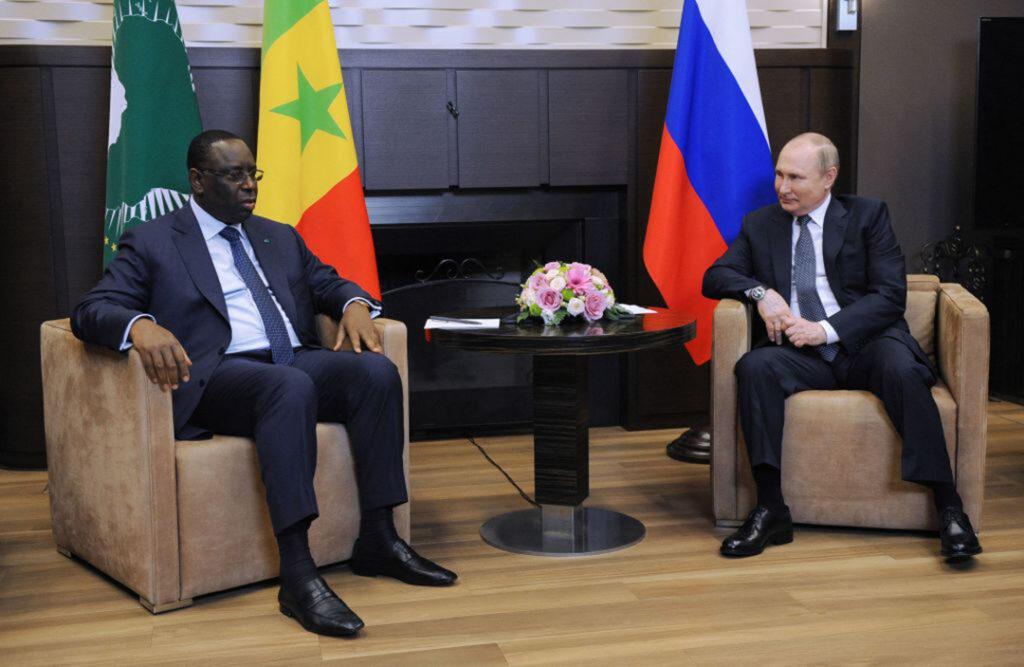ADF STAFF
Russia’s ongoing war with Ukraine has caused grain and fertilizer prices to skyrocket across Africa. About 40% of wheat consumed on the continent comes from the warring nations, driving unprecedented food insecurity and raising the risk of famine.
African Union (AU) Chairperson and Senegalese President Macky Sall confronted Putin about the crisis during an in-person meeting in Russia on June 3.
“I have come to see you, to ask you to be aware that our countries, even far from the theater (of war), are the victims of this economic crisis,” Sall told Putin, according to a Reuters report.
Sall said the lack of fertilizer was the biggest issue since farmers need it to grow food.
“The [fertilizer] situation was already difficult, and now it is even more difficult, and this has consequences for food security in Africa,” Sall said, according to a report by news website RepublicWorld.com.
Many of Ukraine’s ports in the Black Sea have been blocked for exports since Russia invaded in February. Russia’s Navy controls access to the Ukrainian ports. Sall said Putin promised to ease the export of cereals and fertilizer, but the Russian leader offered no details, according to Reuters.
Amin Awad, United Nations crisis coordinator for Ukraine, said the organization is working to secure the release of grain stuck in the country’s Black Sea ports.
“The negotiations are going on,” Awad said in a report by ReliefWeb. “There (are) a lot of details and shuttling between Moscow and other countries that have concerns and the negotiations continue. But there’s no clear-cut emerging solution right now because it’s a board of puzzles that they have to move it together.”
More Than 80 Million Suffering
Mike Dunford, head of the World Food Programme, told the BBC that more than 80 million people were acutely food insecure or acutely hungry in Africa — up from about 50 million people at the same time last year.
Chad has been particularly hard hit. The landlocked nation’s transitional government declared a food and nutrition emergency in early June. About one-third of the population needs food aid, according to the U.N., and the country has pleaded with the international community for help.
Anne Non-Assoum, who lives with her husband in N’Djamena, Chad’s capital, was unhappy about the family’s soaring food bill.
“Look what I bought: Here is meat for 1,500 CFA francs ($2.45), rice for 1,000 and spices for 600 — that’s more than 3,000 CFA francs ($4.90) only for lunch for four people,” Non-Assoum told Deutsche Welle, adding that the same purchase normally would cost about 2,000 CFA francs ($3.27).
Before Russia invaded Ukraine, countries such as Angola, Cameroon, Kenya and Nigeria already were battling rising food prices due to extreme climate and weather, and the COVID-19 pandemic.
“The war in Ukraine has led to more people across Africa going hungry,” Lena Simet, senior researcher on poverty and inequality at Human Rights Watch, said on the organization’s website. “Governments should do everything in their power to mitigate the impact of rising food prices and avert a hunger crisis. Expanding social protection and ensuring the supply of affordable food is critical to protecting the right to food for everyone.”

